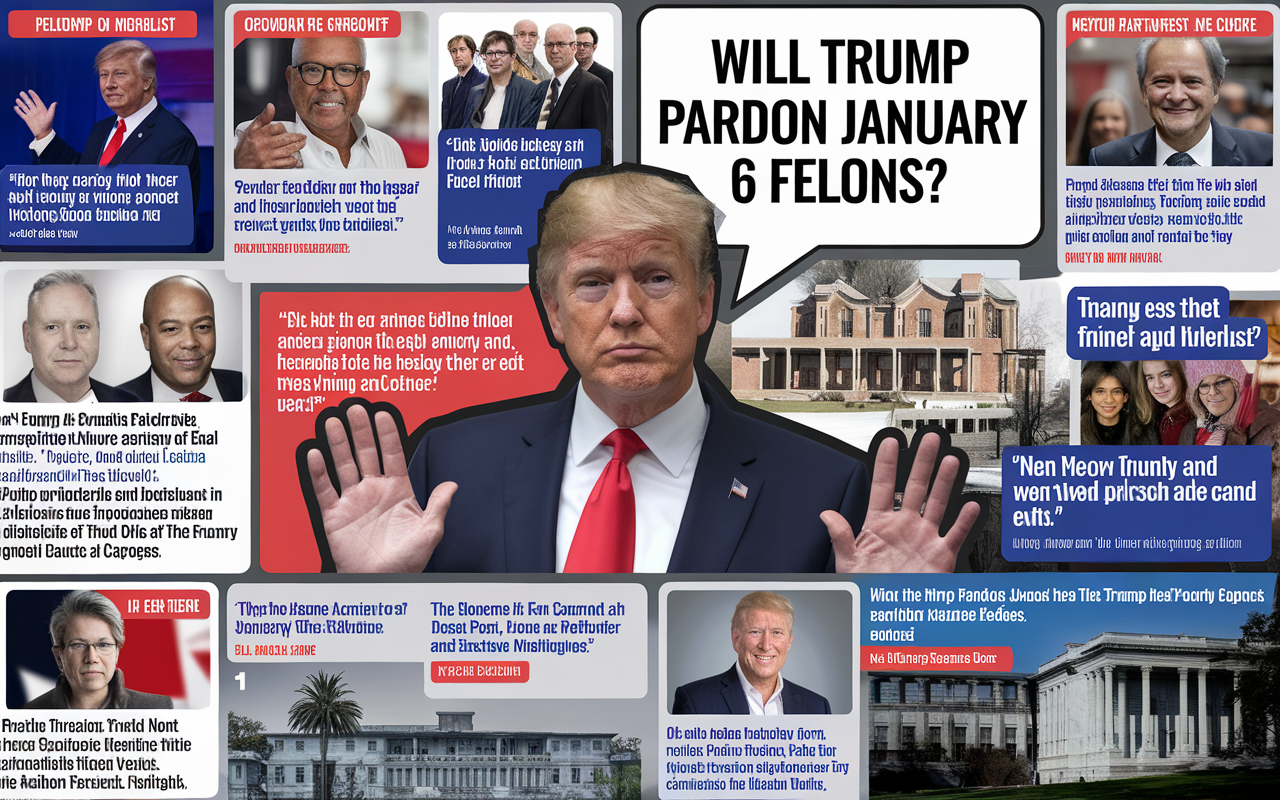Will Donald Trump Pardon Jan. 6 Felons Convicted of Sedition? 🤔🔍
As Donald Trump reclaims the political stage with ambitions of returning to the White House, the lingering question on many minds is whether he plans to issue pardons to those convicted in connection with the January 6 Capitol insurrection. 💼🇺🇸
According to a recent article by Tim Dickinson in Rolling Stone, Trump's transition team has not ruled out the possibility of pardoning individuals charged or convicted of crimes stemming from that fateful day. The speculation is fueled by Trump's own rhetoric, where he has referred to these individuals as "great patriots" and "warriors." Trumps plans to revisit the narrative of January 6 as merely an exuberant rally gone awry continue to fuel divisive conversations surrounding this significant event in U.S. history. 🔥
The Complexity of Pardons and Their Implications 🕵️♂️
With a recent congressional report suggesting a criminal investigation into former Representative Liz Cheney for co-chairing the House January 6 investigation, it seems the rewriting of history is a priority for Trump. He is actively seeking to erase accountability tied to his supporters' actions that day. 😬📜
While it's unclear exactly whom Trump intends to pardon, those serving lengthy sentences for serious felonies, including injuring police officers and sedition, are on the proverbial chopping block. Federal judges, including Judge Amit Mehta, have expressed grave concerns over the implications of pardoning figures like Stewart Rhodes of the Oath Keepers – a sentiment echoed by many who fear for the health of American democracy. ⚖️🚨
Trump's Mixed Messages 🎭
Interestingly, Trump's messaging about the Jan. 6 crowd has been inconsistent. He has claimed that he would consider cases individually and suggested that not all defendants are deserving of clemency. This fluidity creates further uncertainty in an already complex political atmosphere. The question remains: will he extend mercy to those who violently disrupted the democratic process? 🤷♀️❓
Furthermore, the ties between Trump and extremist groups such as the Proud Boys complicate matters. Their leader, Enrique Tarrio, sentenced to 22 years in prison, has previously been associated with Trump’s rallies and even received a nod from Trump during a 2020 debate. These connections only deepen the mistrust among those who see the January 6 incident as a direct attack on democracy. 🔗😡
The Stakes Are High ⚠️
The implications of these potential pardons extend beyond the legalities—this matter encapsulates what many view as a battle for the soul of the country. As we approach the next election cycle, Trump's insistence on portraying convicted felons as victims casts a long shadow over the preservation of democratic principles in America. 🌍👁️
In summary, as Trump once again takes center stage, the question of pardoning Jan. 6 felons serves as a divisive and contentious issue that reflects on the current political climate in the U.S. Whether one views these individuals as patriots or criminals could very well influence the trajectory of American politics for years to come.
What are your thoughts? Do you believe pardoning these individuals would be a step towards reconciliation or a threat to our democracy? Share your views in the comments! 💬👇
For more updates and insights into politics, culture, and the ongoing transformation of America's political landscape, be sure to follow along!
#Trump2024 #January6th

More Stories
Exciting News: The Summer I Turned Pretty is Becoming a Movie
Reflecting on Robert Redford’s Legacy of Integrity and Artistry
Sara Rivers Appeals Dismissal of $60 Million Lawsuit Against Sean Combs: A Fight for Justice in the Entertainment Industry